If you’re interested in learning about the basics of boat crewing or hitchhiking for any reason, you’re in the right place!
In this post, I’ll explain the “what’s” and “why’s”. And if you feel you want to pursue it, in my following post, I share the “how’s”: the step-by-step process of how to find a boat to crew or hitchhike on.

Why would you want to crew on a boat?
There’s an endless list of reasons why people want to crew for a boat. Here’s a few:

1. Affordable transportation:
Hitchhiking by boat is an affordable mode of transportation for long distance travel, and can be potentially, eco-friendly too!
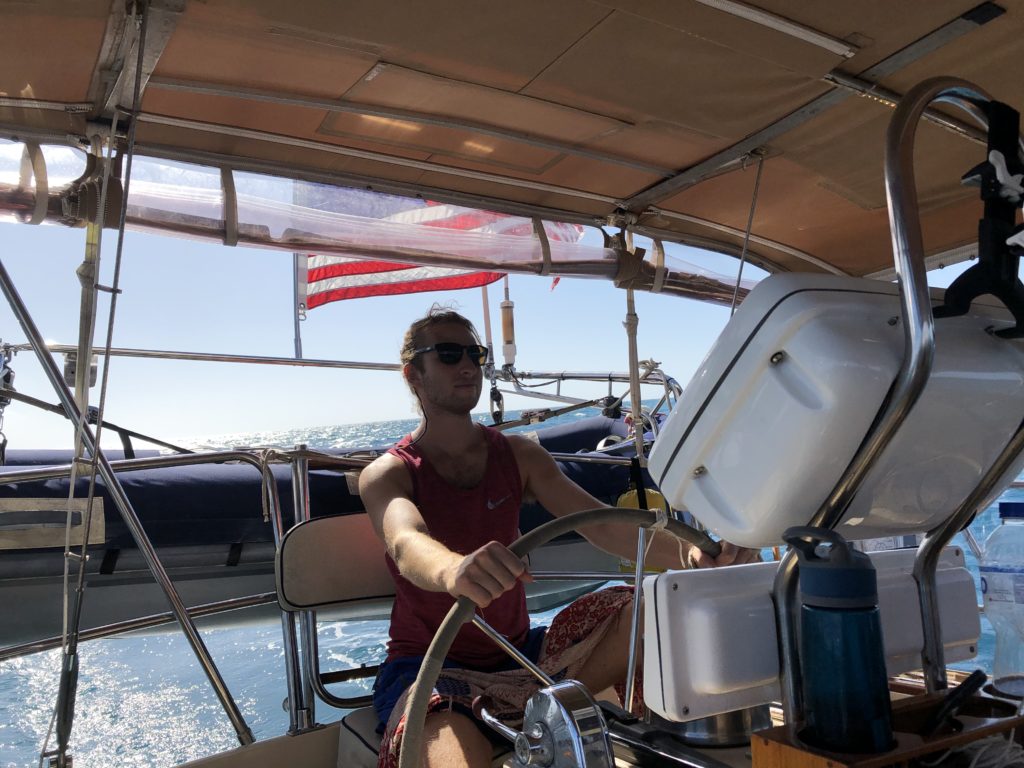
2. Experience in sailing:
Don’t be discouraged if you’re starting off with zero sailing experience and you’re desire is to learn to sail! As long as you’re a motivated crew and willing to learn, captains are very willing to take on sailing newbies.

3. Experience of living on a boat:
Putting the actual sailing part aside, living on a boat is an experience in of itself. If you’re interested in alternative ways of more simplistic living, boat-living is an excellent option to explore.
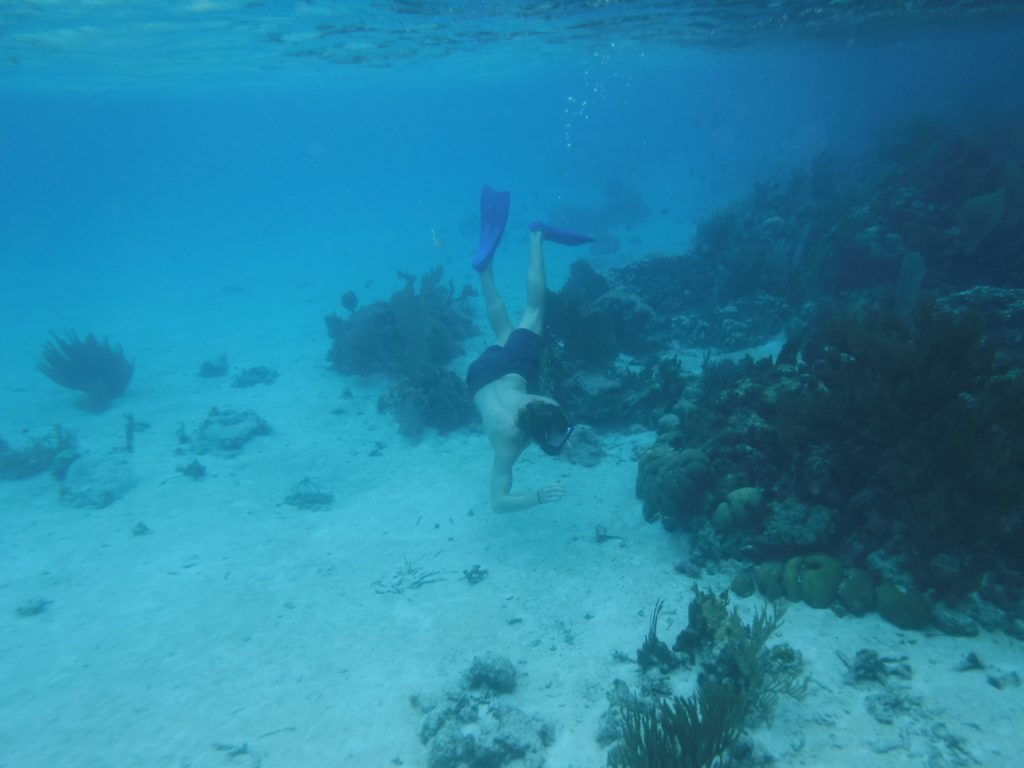
4. Cruising boat experience:
There are many boat owners slowly ‘cruising’ along coastlines, exploring these remote regions on their boats, as they engage in adventurous activities, such as kayaking, paddle boarding, snorkelling, scuba diving, spear fishing, climbing, etc.
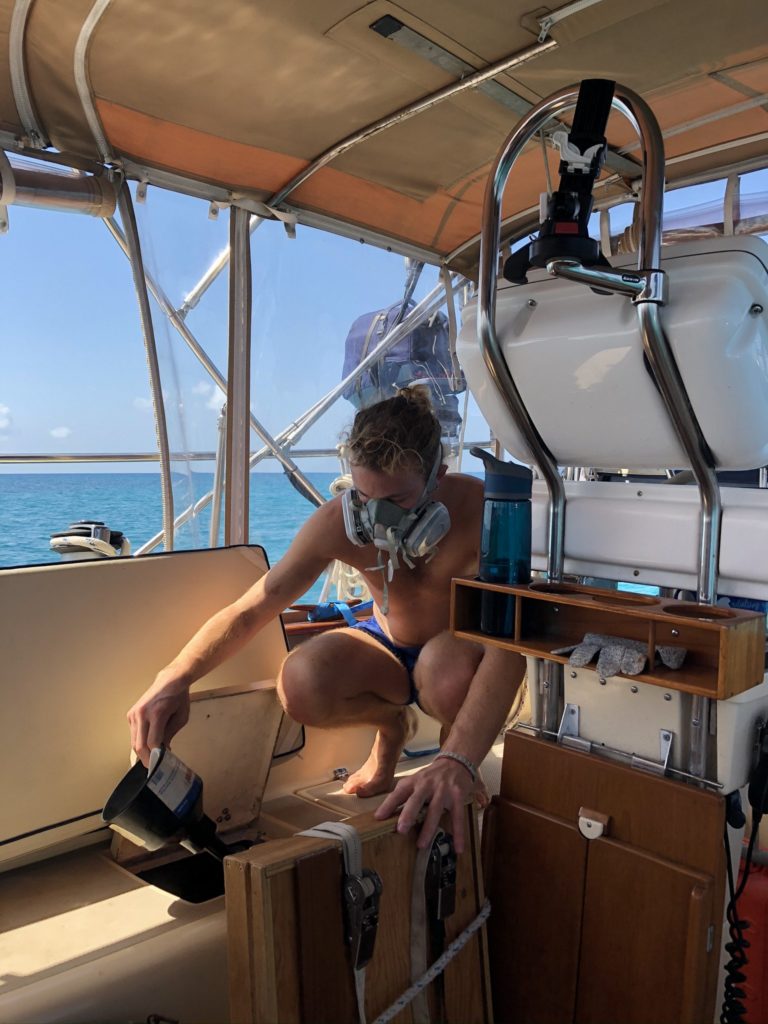
5. Learning to fix boats:
If you’re motivated to learn to repair boats, whether it’s from hoisting a new mast to sewing holes in sails, from renovating the boat’s interior to making aesthetic improvements, or from repairing the diesel engine to replacing a failed battery house bank… crewing may be the right avenue for you!
Your motivation may be a combination of the above reasons!
And your motivation is crucial, as it will:
- Influence how you showcase yourself to boat owners/ sailors (explained in detail in the next post!), and
- Help you to choose among the options you’ve found to crew on.

Why would boat owners take on crew?
Similar to most exchanges in life, there’s the question, “What’s in it for me?” (‘WIIFM’). I’ll share some of the many reasons boat owners are willing to accept crew members on their boats.
- Elderly couples often need an extra pair of hands on deck.
- Solo travelers often seeking for an extra hand, and more importantly, for fun& enjoyable company to join them on their journeys.

Cruising through Belizean islands. Caye Ranguana, Belize.
- Assistance for a passage/ crossing: For longer passages, having a few extra crew on board will make watch rotations shorter, particularly overnight watches. For instance, watch periods may get reduced from 6 hrs per rotation to 4 hrs!
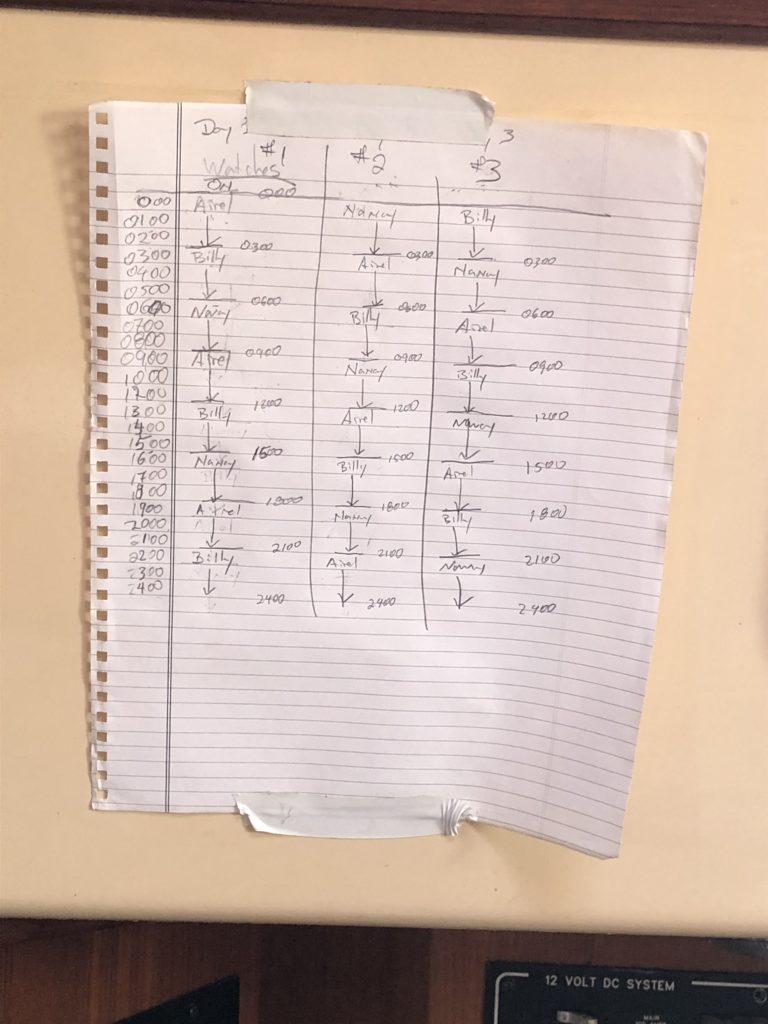
The night watch schedule for a 3-day passage at sea for our team of 1 captain and 2 crew members.
- Regattas/ yacht racing: Boat owners enrolled in a regatta/ race will recruit crew to join their teams. Boat racers seek after crew in particular to actively assist with distributing weight across the boat, in attempt to increase speed!

Become a crew member to race in a sailing regatta!
- Photographers, videographers, or web designers are needed for boats running projects, particularly for sailing travel/ adventure blogs.
- Family with kids seek out crew with nannying skills (i.e., people who are ‘good with kids’), in addition to needing an extra pair of hands for sailing needs.
- Boats requiring repair & renovation seek handy men and skilled laborers to assist with the repair work prior to going out to sea.
- Boat deliveries are in need of experienced captains to deliver boats overseas.
- New boat owners with no sailing experience are in need of experienced captains to instruct & train them in how to navigate their boats at sea.

Crew member responsibilities
Responsibilities you’d have as a crew member depend on the boat owner’s reason for seeking crew. However, crew responsibilities can include any of the following:
- Deckhand (Hoisting & adjusting the sails requires a reasonable level of physical strength & fitness.)
- Cooking (You’ll have to be creative in the kitchen and cook with whatever is stocked on the boat!)
- Cleaning
- Overnight watches (for long passages)
- Fixing/ repairing the boat
- Nannying

Fishing for fresh fish for dinner!

Prepping freshly caught pan-fish for dinner!
Where to be when searching for crewing opportunities?
With the Facebook groups and Crew-seeking network websites, you can do your research from anywhere, even while lying down on the couch in your own home!
However, for the best chances of finding a boat, situate yourself in the right sailing town during the right sailing season! So, get yourself to a coastal sailing town (in the following post I share exactly how to do this)! In doing so, you also have the opportunity to spend time with your potential captain & crew before departing out to sea with them (i.e., to avoid potentially miserable experiences!).
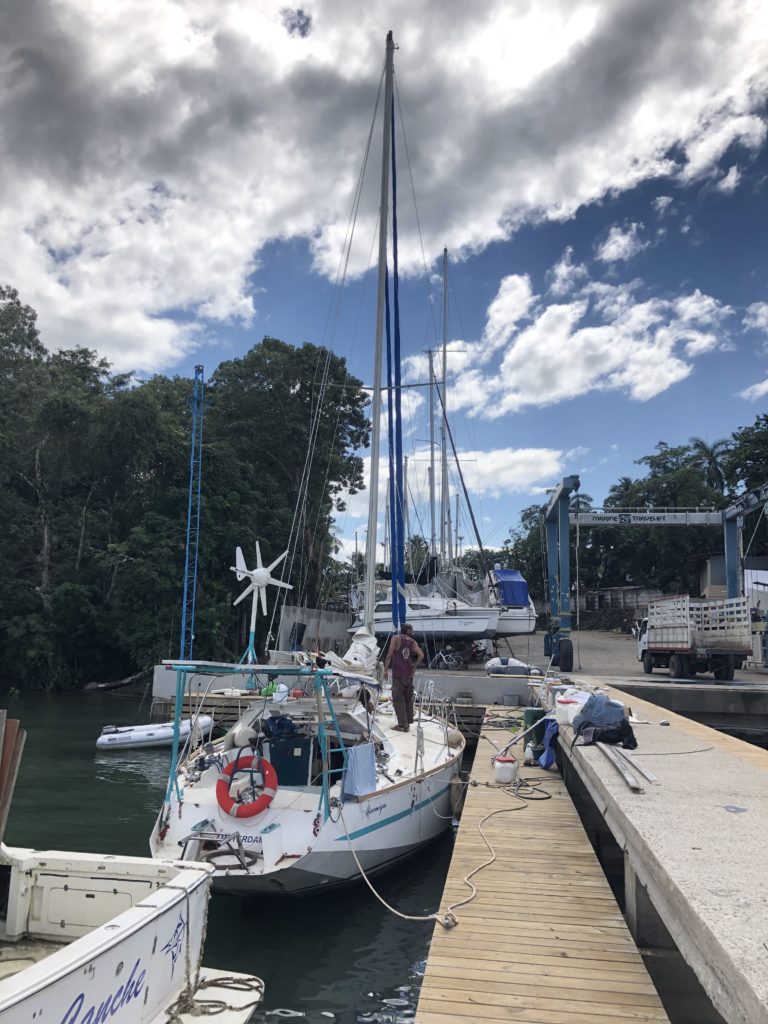
Astillero Magdalena shipyard docks in San Felipe, Guatemala
How much does it cost?

If you’re searching for opportunities online (i.e., Facebook groups, Crewing-networking sites, etc.), typically, boat owners will request a contribution of between $20 – $50 per day, plus any immigration/ visa fees collected upon entering a new destination. The $20 – $50 daily fee is a contribution towards paying the food expenses, fuel costs, anchorage/ marina fees, any repair costs along the way, etc. Essentially, you’re covering a portion of the shared expenses incurred while you’re living on the boat.
However, if you’re walking through the marinas & bars of a sailing town to meet boat owners in-person, you’ll find that most sailors only request for you to “pay your way”. Typically, this means paying for your own immigration/ visa/ custom fees into each country, and for any miscellaneous items you may need along the way (i.e., if you break your flip flops and need to buy a new pair). “Paying your way” may also include splitting the grocery bill when you restock on groceries for the boat, which shouldn’t amount to more than $5 – $10 per day.
Additional key considerations
- Do you get seasick? If you’ve been out to sea on a boat enduring the relentless pounding waves, you’d know if you’re prone to seasickness. If you do get seasick, it may not be the best idea to become a crew member! However, if you’re determined to sail, you can prepare yourself by stocking up on motion-sickness medications, such as Dramamine, which work miracles on boats.
- Are you comfortable swimming? Living on a boat means that you’re surrounded by water. For your safety (and enjoyment!), you should be a confident swimmer if you’re considering crewing on a boat.
- Dietary restrictions: Boat owners tend to feel that accommodating for the dietary needs of additional persons on a boat (given the limited kitchen & storage space) is a hassle. Therefore, boat owners prefer not to take on vegetarians or vegans onboard, unless that’s the boat’s diet of choice!
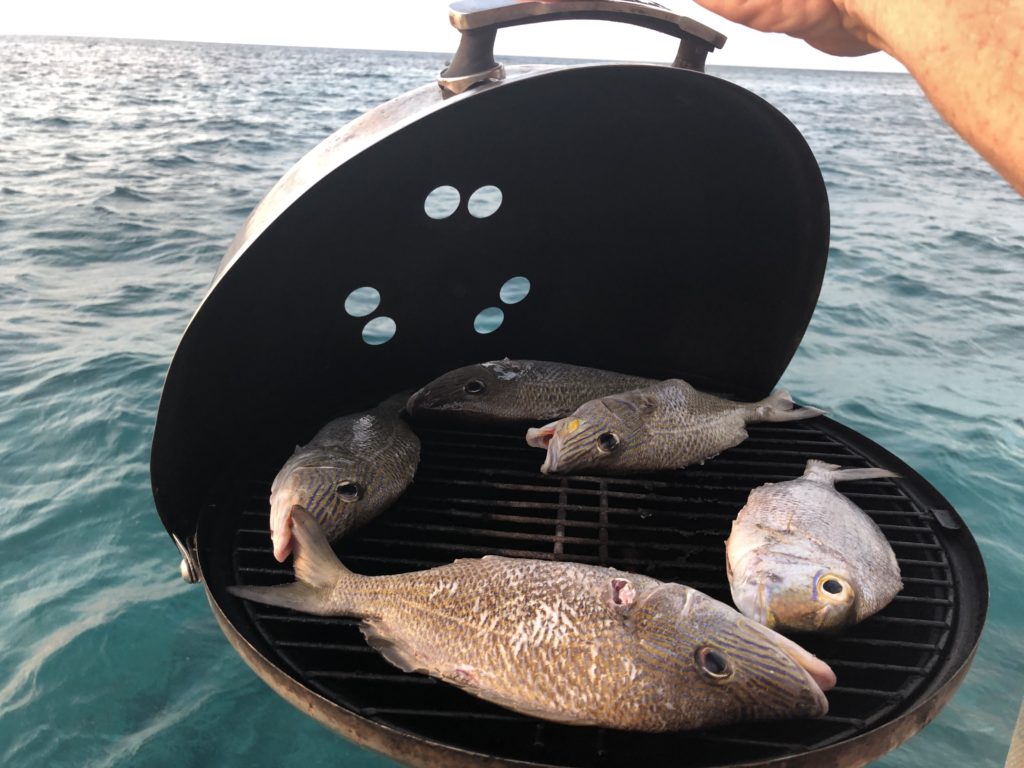
Fresh fish on the grill, which would obviously be a no-no for vegans and vegetarians.
- Sailing experience: Generally, you don’t need any experience sailing to find a crewing or hitchhiking opportunity. However, it would absolutely benefit you if you had some sailing knowledge. If you don’t have experience, beware: Not all captains are willing (nor capable) to teach sailing to their crew. Rather, they may just have you as a pair of hands for when they need. Therefore, if learning how to sail is a primary motivation of yours, then be sure to find a captain who is open to teaching you!
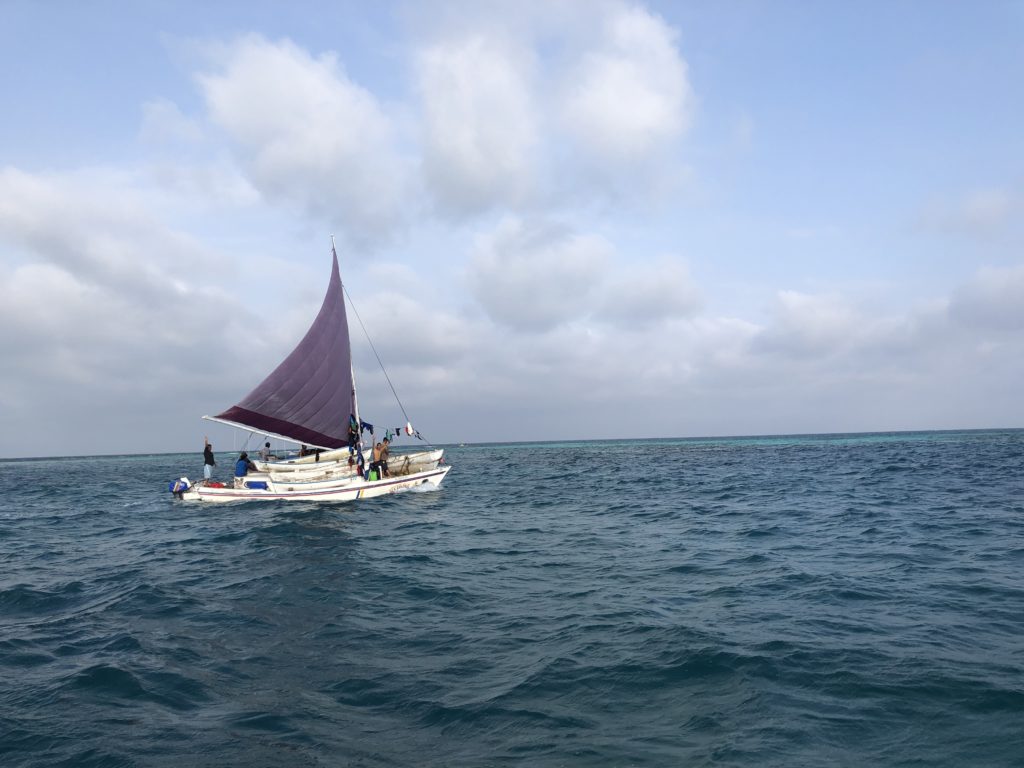
At least 10 local fishermen living together on their small sailboat at sea, along with their 10 wooden canoes sitting on the deck! Although it would be a wildly fascinating experience to sail with them, they may not provide me with the technical sailing knowledge I’m seeking after!
In Part 2 of this 2-post series, I’ll describe the detailed step-by-step process of finding a boat to crew for, or hitchhike on, including my top tips for success!
BE THE FIRST TO COMMENT